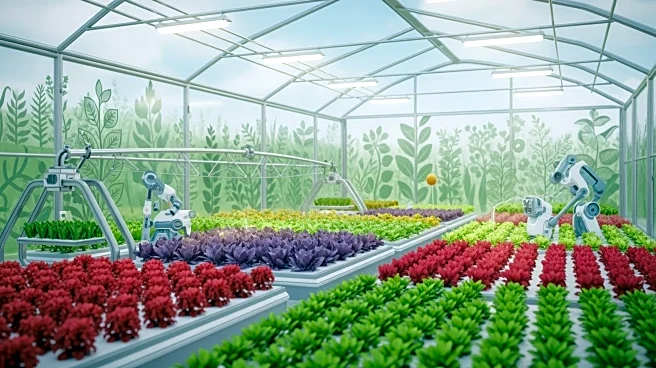What's Happening?
The Food and Agriculture Organisation (FAO) is emphasizing the role of innovation in addressing global food insecurity. Vincent Martin, director of the office of innovation at the FAO, highlighted at the Future
Food-Tech London event that climate shocks, conflict, and economic slowdowns are major threats to food security. The FAO is advocating for a balanced approach that includes technological, social, policy, financial, and institutional innovations. Technological advancements such as AI-powered early-warning systems and biotechnology are being used to protect crops and reduce hunger. However, Martin stressed that technology alone is insufficient and must be complemented by other forms of innovation to achieve the desired outcomes.
Why It's Important?
The FAO's focus on innovation is crucial as it addresses the multifaceted challenges of food insecurity, which affects millions globally. By integrating various forms of innovation, the FAO aims to create sustainable solutions that are accessible and affordable. This approach could significantly impact agricultural productivity and food distribution, potentially reducing hunger and malnutrition. The emphasis on open-source technology and collaborative innovation ensures that even countries with limited resources can benefit, fostering global cooperation and shared progress in food security.
What's Next?
The FAO plans to continue fostering collaboration among stakeholders through initiatives like Living Labs, which bring together academics, farmers, and associations to co-develop solutions. This collaborative model aims to make innovations more adaptable and scalable, ensuring they reach those who need them most. The FAO's ongoing efforts will likely focus on expanding access to both high-tech and low-tech solutions, ensuring that innovations are not only developed but also effectively implemented across diverse agricultural contexts.
Beyond the Headlines
The FAO's strategy highlights the ethical and practical importance of inclusivity in innovation. By prioritizing affordability and accessibility, the FAO is addressing the systemic inequalities that often hinder technological adoption in developing regions. This approach not only aims to solve immediate food security issues but also seeks to empower local communities, fostering resilience and self-sufficiency in the long term.











